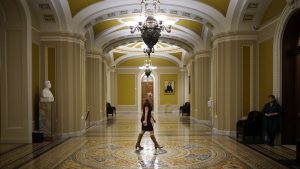SCOTUS to rule on parents declining LGBTQ+ lessons in Maryland schools
Ella Greene April 21, 2025 0
- Maryland parents are asking the U.S. Supreme Court to review a case involving LGBTQ+ inclusive books in elementary schools. The case revolves around religious rights.
- The case centers on Montgomery County’s decision to end a policy that allowed parents to opt their children out of certain story time readings.
- Books in the curriculum include themes of gender identity, Pride parades and same-sex relationships.
Full Story
A group of Maryland parents are asking the U.S. Supreme Court to decide whether public schools are violating their religious rights by requiring elementary students to participate in lessons that include LGBTQ+ inclusive storybooks without parental notice or the ability to opt out. The case stems from a policy change in 2023 by the Montgomery County Board of Education, which ended a previous rule that had allowed parents to remove their children from classroom readings tied to the district’s inclusivity curriculum.
The LGBTQ+ lessons
The readings, introduced in 2022, include titles such as “Born Ready: The True Story of a Boy Named Penelope,” which teaches that doctors “guess” a baby’s gender at birth and that children can determine their own gender identities.
The curriculum, which is aimed at students from kindergarten through fifth grade, includes themes celebrating gender transitions, Pride parades and same-sex relationships. The school board maintains that the materials are designed to foster inclusivity and challenge traditional gender norms.
Concerns over religious rights
However, the decision to eliminate the opt-out option has sparked legal backlash from families who identify as Christian, Islamic and Jewish. The parents argue that the mandatory participation violates their First Amendment rights and disregards deeply held religious beliefs.
While the lawsuit does not seek to remove the books from the classroom entirely, it challenges the lack of accommodation for religious objections. A lower court dismissed the case, stating the families failed to show that their children were forced to alter their religious beliefs or behavior, criteria required to prove a violation of the free exercise clause.
Internal school records submitted in court show that some Montgomery County principals also raised concerns, calling the content “age-inappropriate,” “ideologically one-sided” and “dismissive of religious beliefs.” Others warned that students who disagreed with the lessons were being “shamed.”
According to court documents, the school board defended its decision to end the opt-out policy by citing logistical difficulties and concerns over social stigma.
“The growing number of opt-out requests … gave rise to three related concerns: high student absenteeism, the infeasibility of administering opt-outs across classrooms and schools and the risk of exposing students who believe the storybooks represent them and their families to social stigma and isolation,” the board wrote.
Wisconsin v. Yoder
The case draws comparisons to Wisconsin v. Yoder, a 1972 Supreme Court ruling in which the justices sided with Amish families who objected to a state law requiring children to attend school until age 16. The court ruled that the families’ religious freedoms outweighed the state’s interest in compulsory education.
Oral arguments in the Montgomery County case are set to begin Tuesday, April 22, with the court considering whether religious liberty extends to curriculum participation in public education.
Related Stories
Ella Rae Greene, Editor In Chief
Ella Greene
Ella and the staff at Clear Media Project (CMP) curate these articles.
Unless otherwise noted CMP does not write these articles.
The views, thoughts, and opinions expressed in the articles published on this blog belong solely to the original authors and do not necessarily reflect the views of the blog owner. The blog owner does not claim ownership of the content shared by contributors and is not responsible for any inaccuracies, errors, or omissions.
All rights and credits goes to its rightful owners. No Copyright Infringement is intended. If you believe any content infringes on your rights, please contact us for review and potential removal.





